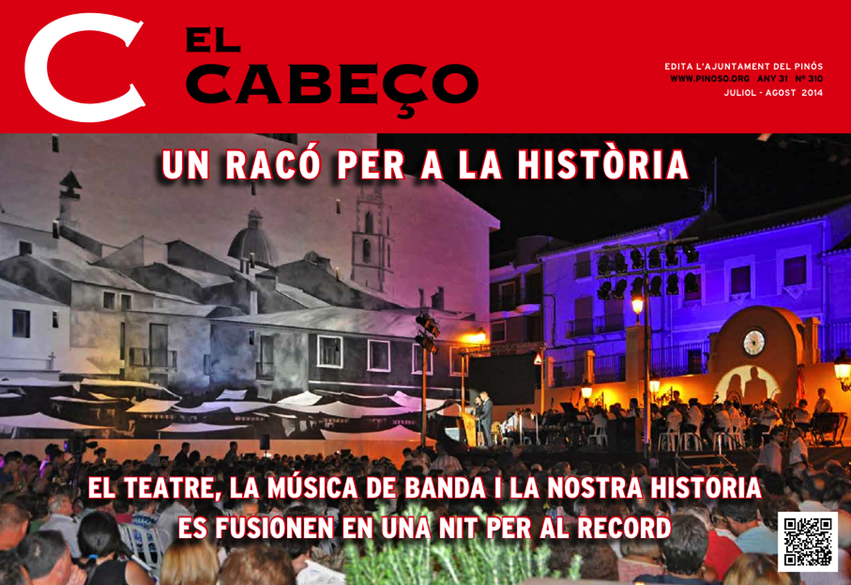When we first settled in Pinoso the Internet wasn't as all pervasive as it is today. There was still a weekly rag, el Canfali, which reported the news from Pinoso and many of the surrounding towns. The quality of its journalism was questionable but it was a part of my weekly routine to buy and read it. I was sad when it died. Good for my Spanish and good to know what was happening.
Our local Town Hall runs a radio station and a TV station. The TV station fell foul of the digitalisation of the Spanish television networks and finally gave up analogue broadcasting in March 2012. Even before it closed we lost the signal in Culebrón with a change of transmitter. I don't quite understand how or why but it still exists on the internet although it seems to produce still rather than moving images. There are just fourteen videos on its
Facebook page for instance. The Pinoso Town Hall website is enigmatic about Telepinos's future "waiting to find a method of being an open window for all the people of Pinoso."
The
radio station is fine. The signal's a bit weak our side of town but it broadcasts on the internet too. A mix of local programming and idiosyncratic music.
The other source of written information, alongside the commercial Canfali and the generalist commercial provincial press, was and is a free magazine produced by the Town Hall. It's called
El Cabeço. It used to be monthly but times are hard and it now seems to be truly periodical - sometimes it covers three months, sometimes two. I don't have to worry about publication date. My pal Geoff collects one when he sees one in the newsagent where he picks up his Daily Mail every day. When it comes out I get one. I presume the same writing team put together the news on the Town Hall website every day.
I suspect that the editorial in El Cabeço is a little biased. When the PP/UCL were in power el Cabeço told us about their wonderful achievements. The present administration is PSOE/PSD and it's their turn to be outstanding. Nonetheless a lot of the information is purely factual and the parts I can read (much of it is in Valenciano) are usually pretty interesting. Each of the political parties gets space in the magazine anyway and they anticipate the guff of their opponents and answer back in anticipation. It can be amusing to read. There is obviously something close to "Parliamentary Privilege" in what opposing politicians can say within its pages.
You may remember that when we voted in the European elections I mentioned that we had
a sort of referendum about some local questions too. Well El Cabeço tells me there's going to be another one in September this time about the future of our local salt dome, our emblematic mountainlet, el Cabeço in Valenciano or el Cabezo in Castellano.
Before I explain tell me what the answer is to this question: "Are you in agreement with the wells of the salt dome being used for potentially contaminating substances quite unrelated to their actual use?" It loses something in translation but I hope you have no doubt about the correct answer.
This is about
the plan to use the empty spaces within the hill to store some of Spain's strategic oil reserve. I notice in his editorial in the magazine that the mayor doesn't shilly shally around when he describes the idea as damaging (nocivo) and says that he hopes the referendum will give support to the plans his party is developing to stop the project.
I don't quite understand why there is going to be a referendum. Thousands of opposing signatures have already been collected which surely serve the same purpose but I look forward to reading about the landslide support for keeping the hill clean in the next edition.











